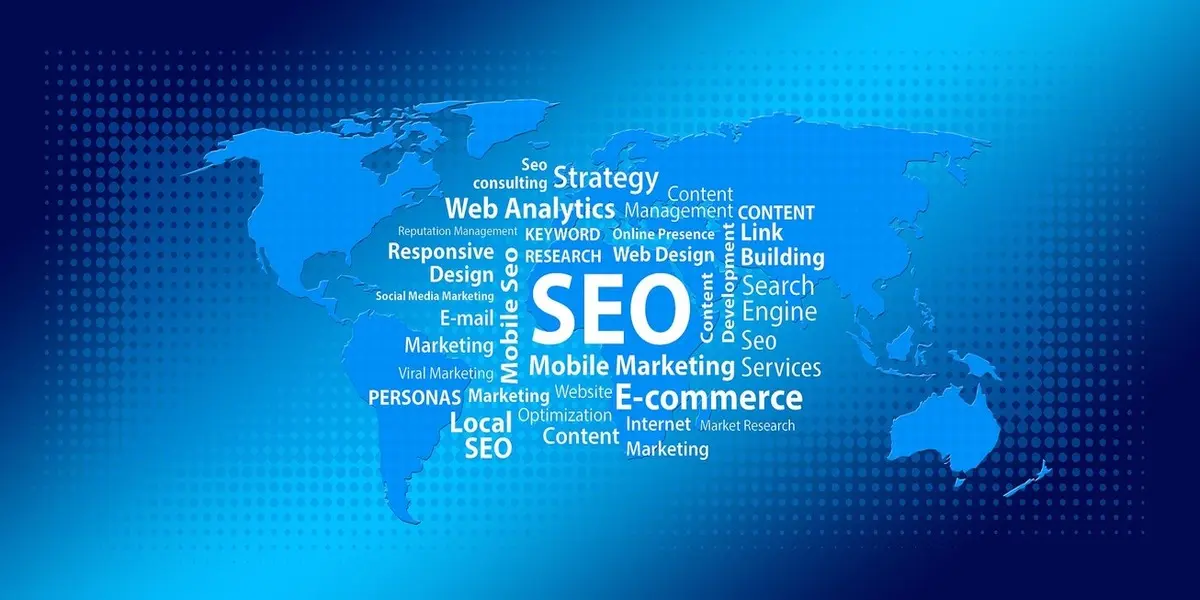As we delve deeper into the multifaceted realm of Search Engine Optimization (SEO), we must take a step back and understand the platform SEO is designed to optimize for search engines.
These robust, intricate systems are the gateways to the boundless information available on the Internet, shaping user experiences and influencing how businesses and individuals interact online.
Understanding the fundamentals of search engines is not merely a theoretical exercise but a practical necessity for anyone serious about mastering SEO.
This post, “Fundamentals of Search Engines,” is a foundational framework for comprehending search engines’ inner workings.
We will unravel the complex algorithms and data structures that enable search engines to find, rank, and display web pages based on a user’s query.
This knowledge will empower you to formulate SEO strategies aligned with how search engines operate, significantly increasing the efficacy of your optimization efforts.
We’ll start by discussing how search engines work, exploring the crawling, indexing, and ranking steps collectively contributing to the Search Engine Results Pages (SERPs) we all interact with daily.
Subsequently, we will delve into the key concepts and terminology that are integral to understanding search engines—terms like “PageRank,” “bots,” “spiders,” and “search signals,” among others.
As we progress, we will look at the role of SEO within the broader context of digital marketing and why understanding the mechanics of search engines is indispensable for an effective digital marketing strategy.
Finally, we will address ethical considerations, delving into what practices are considered ethical or “white-hat” and what falls under the “black-hat” category. This will allow you to make informed decisions that stand the test of time in a constantly evolving digital landscape.
Understanding the fundamentals of search engines will not only enlighten you about the underlying mechanisms that influence SERPs but also help you appreciate the intricacies of SEO.
It is a cornerstone to build more advanced knowledge in keyword research, on-page optimization, technical SEO, and other areas that make up the complex mosaic of SEO expertise.
So, whether you’re an entrepreneur aiming to elevate your business, a digital marketer looking to sharpen your skills, or an enthusiast eager to understand the digital world better, this post promises to provide valuable insights that can serve as building blocks for your SEO journey.
Please sit back, absorb, and demystify the algorithms and operations that power the search engines we rely on daily.
Table of Contents
How Search Engines Work

Understanding how search engines work is akin to unlocking a mystery central to the modern digital experience.
Every day, billions of searches are conducted on platforms like Google and Bing, helping users find information about businesses, products, and services.
At the heart of this interaction lies a complex system of algorithms, data structures, and technologies that enable instantaneous connections between users and information.
This post will delve into the mechanisms that enable search engines to crawl, index, and rank websites, thereby creating the Search Engine Results Pages (SERPs) we see when we type in a query.
The Lifecycle of a Search Query: An Overview
At a high level, the functioning of a search engine can be broken down into three main stages:
- Crawling: This is where search engine bots, also known as crawlers or spiders, scour the web to discover new or updated pages.
- Indexing: Once the pages are discovered, they are indexed and stored in massive databases, which can be retrieved when relevant to a search query.
- Ranking: When a user inputs a search query, the search engine’s algorithm assesses the indexed pages and ranks them based on various factors, presenting the most relevant and authoritative results to the user.
Let’s explore each of these stages in detail:
Crawling: The Digital Cartographers
The web is an ever-expanding universe of pages, and search engine crawlers act as digital cartographers, mapping out this complex terrain.
These crawlers follow links from known web pages to new pages, recording their findings and sending them back to be stored in the search engine’s database.
The crawling frequency can vary based on several factors, including the website’s importance, frequency of content updates, and technical aspects like website speed and sitemaps.
Various types of bots perform specialized functions. For example, Googlebot is Google’s web crawling bot, while Bingbot serves the same purpose.
These bots rely on algorithms to decide which sites to crawl, how often, and how many pages to fetch from each site.
Indexing: The Digital Library
Indexing is the next step in the search engine’s lifecycle. Once a web page is discovered, the crawler processes and stores the data to make it retrievable during a user search.
This is akin to cataloging a book in a library. The search engine creates an index based on text content, images, videos, and other media files on the web page.
Metadata like keywords, headings, and links are also considered during indexing. While indexing, search engines also evaluate various elements like the quality of content, meta descriptions, and the relevance of backlinks pointing to the page.
Factors like canonical tags and robots.txt files can also influence what gets indexed.
Ranking: The Algorithmic Symphony
The third and most critical stage is ranking. Once a user enters a query, the search engine’s algorithms start working, pulling relevant data from the index and presenting it as SERPs.
A multitude of factors influences the ranking of these results. Google, for instance, considers over 200 factors when ranking web pages, although not all are given equal weight.
Some of these factors include:
- Relevance: How well the content matches the query.
- Authority: The number and quality of links pointing to the page.
- Usability: Site speed, mobile-friendliness, and user experience.
- Content Quality: Originality, depth, and structure of the content.
- Personalization: User history, location, and settings.
The precise ranking algorithms are closely guarded trade secrets and continuously evolve, but understanding these basic principles can go a long way toward mastering SEO.
Search Algorithms: The Evolving Paradigms
Search engines regularly update their algorithms to improve search accuracy and user experience. Google, for example, frequently tweaks its algorithm and occasionally releases significant updates that can significantly impact SERPs.
Some landmark algorithm updates include Google Panda, which penalizes low-quality sites; Google Penguin, which focuses on reducing the effectiveness of black-hat SEO techniques; and Google Hummingbird, which considers the context and semantics of search queries.
Understanding these updates is essential for SEO practitioners who must adapt their strategies to stay ahead.
Structured Data and Rich Snippets
Search engines are increasingly incorporating structured data and rich snippets into their algorithms. Structured data allows search engines to better understand the content and context of web pages, enhancing the quality and relevance of search results.
Rich snippets, on the other hand, present information from the webpage directly on the SERP, improving user experience.
Mobile Search and Voice Search
With the proliferation of smartphones and voice-activated devices, mobile and voice searches have become significant considerations for search engines.
Mobile-first indexing means that Google predominantly uses a website’s mobile version for ranking and indexing.
Voice search algorithms also consider factors like natural language processing and question-based queries.
Ethical Considerations: White Hat vs. Black Hat
While search engines aim to provide the most relevant and high-quality results, some try to game the system using unethical or “black-hat” methods like keyword stuffing, cloaking, and link farming.
Search engines continuously update their algorithms to penalize such practices. Ethical or “white-hat” SEO focuses on creating user value by adhering to search engine guidelines.
Key Search Engines Concepts and Terminology
Navigating the world of search engine optimization (SEO) can often feel like venturing into a labyrinth filled with jargon, acronyms, and concepts that seem foreign to the uninitiated.
However, understanding the specific terminology and fundamental concepts is vital to mastering SEO, like any discipline.
This segment aims to demystify these terms, exploring the essential concepts that form the backbone of how search engines function and interact with websites.
Whether you’re an SEO newcomer, a business owner trying to improve your online presence, or even a seasoned digital marketer looking to refresh your understanding, this guide is designed to enlighten you.
Search Query
At the heart of every interaction with a search engine is the “search query,” often referred to as “keywords” or “search terms.”
A user types this phrase or question into the search box. Search queries can range from single words like “weather” to complex sentences like “how to bake a chocolate cake from scratch.”
Understanding the nuances of search queries, including their intent, length, and specificity, is pivotal for effective SEO.
SERP (Search Engine Results Page)
SERP is the acronym for Search Engine Results Page, the page that displays the results for a given search query.
Depending on the search query, it typically contains both organic and paid listings and various other elements like featured snippets, knowledge graphs, and local maps.
Organic vs. Paid Results
- Organic Results: These listings appear naturally in SERPs based on the search engine’s algorithm. Organic results are considered more credible and receive the majority of clicks.
- Paid Results: Also known as Pay-Per-Click (PPC) results, these are advertisements that businesses pay for to appear on SERPs. They are generally labeled as “Ad” or “Sponsored” and appear at the top or bottom of the page.
Crawlers, Spiders, and Bots
These automated software agents scour the web to find, index, and update web pages in a search engine’s database.
Different search engines have their crawlers; for example, Google’s is called Googlebot, and Bing’s is known as Bingbot.
Understanding how to facilitate effective crawling through sitemap submissions can significantly impact your website’s SEO performance.
Indexing
Indexing stores web pages in a search engine’s database after crawlers have discovered them. The search engine’s index acts as a massive digital library, storing billions of web pages that can be quickly retrieved when relevant to a search query.
Technical elements like robots.txt and meta tags can control what parts of your website get indexed.
Algorithms
Algorithms are sets of rules and calculations that search engines use to determine the ranking of web pages for each search query.
Search engines like Google use complex and closely guarded algorithms, updated regularly, to ensure relevant and quality results.
Ranking Factors
These are the specific elements that a search engine’s algorithm considers when determining how to rank a web page in the SERPs.
Ranking factors can be broadly categorized into on-page factors (content quality, keyword optimization), off-page factors (backlinks, social signals), and technical factors (site speed, mobile-friendliness).
SEO Signals
SEO signals are the various elements that search engines analyze to gauge a web page’s quality and relevance.
These can include keyword presence, backlink quality, and social sharing metrics. These signals serve as inputs to the ranking algorithms.
Keyword Density
This measures how often a keyword appears within a web page’s content, usually represented as a percentage.
While keyword density used to be a significant ranking factor, modern algorithms have evolved to focus more on content quality and relevance.
Meta Tags
Meta tags are snippets of text that describe a page’s content but don’t appear on the page itself. These are embedded within a page’s HTML code and can impact how search engines index your content. The most important ones for SEO are the meta title and meta description tags.
Anchor Text
This is the clickable text in a hyperlink, usually appearing in a different color or underlined. Search engines use anchor text as a ranking factor, considering it a descriptor of the linked page’s content.
Backlinks
Backlinks, or inbound links, are links from one website to another. They are one of the most critical ranking factors in SEO, serving as “votes of confidence” from one site to another. The quality and relevance of backlinks often matter more than quantity.
PageRank
Initially developed by Google co-founders Larry Page and Sergey Brin, PageRank is an algorithm used to measure the importance of web pages based on the quality and number of links pointing to them.
While PageRank is no longer the only algorithm in play, understanding it can provide insights into Google’s early approach to ranking.
Canonical Tags
These HTML elements help prevent duplicate content issues by specifying a web page’s “canonical,” or preferred, version. This allows search engines to understand which version to index and rank.
Robots.txt
This is a text file located in your website’s root directory. It instructs search engine crawlers which pages to index or ignore.
A well-configured robots.txt file can optimize the crawling process, ensuring that only relevant pages are indexed.
Sitemaps
Sitemaps are files that list all of a website’s web pages, aiding search engines in crawling and indexing the site.
They can be submitted directly to search engines via tools like Google Search Console to expedite the crawling process.
Local SEO
This refers to optimizing a website for local search queries, often involving a geographical component like “coffee shops near me.” Elements like Google My Business listings and local keywords are crucial for local SEO.
Black Hat and White Hat SEO
These terms refer to the ethical stance of particular SEO techniques. Black Hat SEO involves tactics that violate search engine guidelines to gain higher rankings, while White Hat SEO focuses on ethical strategies that align with these guidelines.
The Role of SEO in Digital Marketing

The intersection of Search Engine Optimization (SEO) and broader digital marketing strategies is significant in the digital landscape.
While SEO might once have been considered a technical, isolated function, times have changed.
Today, SEO is deeply interwoven into the fabric of digital marketing, and understanding this integration is crucial for anyone striving to achieve online success, be it for a personal brand, a small business, or a multinational corporation.
SEO: More Than Just Keywords
The essence of SEO is to optimize a website so it appears prominently in search engine rankings, thus increasing visibility, driving organic traffic, and, ideally, fostering conversions and sales.
But SEO isn’t just about keywords and backlinks; it’s about creating a seamless and relevant user experience.
The algorithms used by search engines like Google have evolved to include factors like page load speed, mobile responsiveness, content quality, and even user engagement metrics like dwell time and bounce rate.
The Multifaceted World of Digital Marketing
Conversely, digital marketing is an umbrella term encompassing many online marketing strategies, including content marketing, social media management, email marketing, Pay-Per-Click (PPC) advertising, and more.
Each strategy aims to capture and engage a target audience across various digital channels, guiding them through the customer journey from awareness to conversion.
Where SEO Meets Digital Marketing
How does SEO play into this complicated milieu of online marketing activities?
Let’s delve into some key areas where SEO directly or indirectly impacts digital marketing strategies.
1. Content is King, but SEO is the Kingmaker
You’ve likely heard the phrase “Content is King,” emphasizing the importance of quality, relevant, and valuable content in digital marketing. However, even the best content is ineffective if no one sees it.
This is where SEO comes into play. SEO practices ensure that your valuable content reaches the audience it deserves by optimizing content around relevant keywords, structuring it to be easily scannable, and creating meta descriptions that encourage clicks.
2. The Foundation of SEM (Search Engines Marketing)
Search engine marketing (SEM) is a digital marketing approach that uses SEO and paid advertising strategies like PPC.
While PPC can drive immediate results, SEO provides long-term value. The two complement each other: effective SEO can improve the quality score of your PPC campaigns, reducing costs, while insights from PPC analytics can inform your SEO strategy.
3. Customer Journey Mapping
Modern digital marketing is about understanding and leveraging the customer journey, which comprises different stages like awareness, consideration, purchase, and loyalty.
SEO is essential in this journey, particularly in the initial stages.
For example, informational long-tail keywords can attract users in the awareness phase, while more specific, product-related keywords can capture intent in the consideration or purchase phases.
4. The Amplification of Social Media Strategies
While social signals (likes, shares, etc.) are not a direct ranking factor for Google, the lines between SEO and social media are increasingly blurred.
Well-optimized, high-quality content is more likely to be shared on social media platforms, increasing visibility and potentially attracting backlinks, which can improve SEO performance.
5. Email Marketing and SEO
A robust email marketing strategy can work in tandem with your SEO efforts. For instance, creating quality content that addresses the needs of your audience not only serves SEO objectives but can also be used as valuable content in email newsletters.
This content can drive traffic back to your site when well-optimized, supporting both SEO and broader digital marketing goals.
6. User Experience and Technical SEO
In an era where user experience (UX) is a ranking factor, the role of technical SEO, which includes site speed optimization, mobile-friendliness, and secure, accessible websites, is more critical than ever.
Good UX contributes to higher search rankings and improves overall user engagement, thus benefiting the larger digital marketing ecosystem.
Analytics and Data-Driven Decision-Making
One of the hallmarks of digital marketing is the ability to track and measure performance. Tools like Google Analytics provide invaluable data on SEO performance and user behavior and engagement.
These insights can inform various facets of a digital marketing strategy, from content creation to PPC campaigns.
The Cost-Effectiveness of SEO
Finally, it’s important to note that SEO often offers a higher return on investment (ROI) than other digital marketing methods.
Organic search traffic generated through effective SEO strategies is more sustainable and tends to have a higher conversion rate than traffic through paid channels.
The Evolving Landscape
With the advent of emerging technologies like AI, voice search, and machine learning algorithms, the landscape of both SEO and digital marketing is continuously evolving.
For example, as voice-activated AI assistants like Siri, Alexa, and Google Assistant become more integrated into our daily lives, optimizing voice search is becoming a new frontier in SEO.
This, in turn, feeds into the broader digital marketing strategy, as businesses will need to think about how voice search interfaces with other marketing channels like content marketing or social media.
Ethical Considerations in SEO
Search Engine Optimization (SEO) isn’t just a battle for visibility; it’s also an arena where ethical considerations play a vital role.
As the digital landscape continues to evolve, understanding the importance of ethics in SEO has become crucial for any individual or business aiming to achieve sustainable online success.
This section explores the complexities of ethical considerations in SEO, from White Hat and Black Hat tactics to the influence of SEO ethics on user experience, content quality, and brand reputation.
The Dichotomy: White Hat vs. Black Hat SEO
In the world of SEO, you can generally take two roads: the ethical high road of White Hat SEO or the risky, shortcut-laden path of Black Hat SEO.
1. White Hat SEO
This involves implementing optimization strategies, techniques, and tactics that focus on human audiences and align with search engine rules and policies.
White Hat SEO includes optimizing meta tags, creating high-quality content, improving website speed, enhancing user experience, and earning backlinks from reputable websites.
2. Black Hat SEO
These are tactics used to trick or manipulate search engine algorithms for quicker ranking gains. Techniques include keyword stuffing, cloaking, invisible text, doorway pages, and buying links.
Black Hat practices can result in penalties or even a complete ban from search engines. The choice between the two approaches goes beyond just the risk of penalties; it touches on your business’s or personal brand’s ethical integrity.
User Experience: An Ethical Obligation
Search engines aim to deliver the most relevant and valuable information to the user. Therefore, any attempt to deceive the search engine algorithm is essentially an attempt to deceive the user.
Today’s search engine algorithms increasingly prioritize user experience metrics, including site speed, mobile friendliness, and dwell time.
Employing Black Hat tactics to manipulate these metrics is not just unethical; it’s counterproductive in the long run.
The Content Conundrum
Another area where ethical considerations are critical is content creation. The proliferation of clickbait, fake news, and misleading headlines are all by-products of an SEO strategy that values traffic over truthfulness or relevance.
While these tactics may drive short-term gains in website visits, they erode user trust and brand integrity over the long term.
Ethical SEO involves attracting users to your site and providing valuable, accurate, relevant content.
The Transparency Factor
Ethical SEO extends to the transparency you maintain with your clients if you’re an SEO consultant or agency.
It is crucial to keep them informed about the techniques and strategies you plan to implement. Veering into Black Hat techniques without client knowledge crosses an ethical line that could have severe repercussions, not just for SEO rankings but also for the reputation of both parties involved.
Accessibility and Inclusivity
As the internet becomes more integral to daily life, ensuring your website is accessible to all audiences, including those with disabilities, is not just a legal consideration but also an ethical one.
Properly optimized websites that adhere to web accessibility guidelines are naturally more SEO-friendly, as search engines value sites that provide a good user experience for the broadest possible audience.
The Influence of Machine Learning and AI
The advent of machine learning algorithms and AI technologies in search presents another layer of ethical considerations.
As search engines get more imaginative, they better detect manipulative tactics and understand user behavior.
Therefore, SEO strategies must evolve to be more human-centric, focusing on providing real value rather than tricking algorithms.
Brand Reputation and Ethical SEO
Your approach to SEO is a direct reflection of your brand’s ethical stance. Businesses that focus on ethical SEO practices are more likely to build stronger reputations and foster greater trust among their customer base.
Conversely, companies caught using Black Hat techniques risk damaging their reputation, possibly irreversibly.
The Global Perspective
SEO doesn’t exist in a vacuum; it’s a global enterprise. Ethical considerations must extend to how you adapt your SEO strategies for audiences in different cultures, languages, and regions.
Sensitivity to local customs, laws, and consumer preferences is crucial, especially when creating content and developing link-building strategies.
The Future of Ethical SEO

As we move further into an era of increasingly sophisticated search engines, the room for unethical SEO tactics is shrinking.
Search engines are becoming more transparent about what they consider good and bad practices, and users are becoming more educated about discerning quality content from manipulative content.
KEEP READING:
- SEO Analytics and Reporting: The Simple Step-by-Step Guide
- Off-Page SEO and Backlinks: Everything You Need to Know
- Keywords Research and Analysis: The Definitive Guide in 2024
Search Engines: Wrapping Up
Understanding how search engines work is a prerequisite for anyone interested in SEO. From the moment a crawler discovers a web page to the point where it appears on a user’s search result, many complex processes come into play.
The world of search engines is dynamic, with algorithms constantly evolving to adapt to new technologies, trends, and user behaviors.
Awareness of these underlying mechanisms equips you to develop more effective, adaptable, and forward-thinking SEO strategies, setting you on a path to mastering this critical digital marketing discipline.
Understanding the terminology and fundamental concepts of search engines is essential for anyone seeking to master SEO or simply aiming to grasp better how online search functions.
As algorithms evolve and the digital landscape shifts, staying updated on these concepts will enable you to adapt, optimize, and thrive in the ever-changing world of search engine optimization.
Each term and concept is a piece of the giant puzzle, coming together to form a comprehensive picture of the complex interactions between websites, search engines, and users.
With this knowledge, you’ll be better equipped to navigate SEO’s intricate, dynamic realm.
SEO is no longer a standalone discipline but an integral, multifaceted component of a broader digital marketing strategy.
Businesses and marketers can create a synergistic, efficient, and effective digital presence by aligning SEO objectives with digital marketing goals and continuously adapting to algorithm shifts and user behavior.
Understanding the role of SEO in digital marketing is crucial for leveraging the full potential of online platforms, maximizing visibility, driving high-quality traffic, and, ultimately, achieving business success.
So whether you’re just starting your journey in digital marketing or are a seasoned professional, remember that mastering SEO is not just about ticking a box; it’s about integrating it seamlessly into every aspect of your digital marketing efforts to create a cohesive and successful online strategy.
SEO is more than just a set of technical strategies to improve website ranking; it’s a practice that involves a high degree of ethical responsibility.
Adhering to ethical SEO practices is not just about avoiding penalties or the wrath of search engines; it’s about establishing a brand that is trustworthy, authoritative, and respectful of its audience.
The ethical landscape in SEO is complex, and the stakes are high. Your choices can have a long-lasting impact on your online presence and brand reputation.
Hence, understanding and integrating ethical considerations into your SEO strategy is not merely a ‘nice-to-have’; it’s a ‘must-have.’
Focusing on ethical practices will improve your chances of SEO success and build a sustainable, reputable, and ultimately more profitable online presence.
That all. Let’s meet in the comments column below.
Let us discuss this.
If you liked this article, Fundamentals of Search Engines, please follow us on the following Social Networking:
- Find Us On Facebook
- Connect with WordPress Experts and other WordPress Users in our free Facebook Community.
- Join Us On Twitter
- Follow Us On the Telegram Group
- Find Us On the WhatsApp Channel
- You can also reach Us by using the Contact Form.
- Also, find Our Blog Page for more tutorials.
- Follow Us On Google News for more updates.




